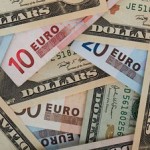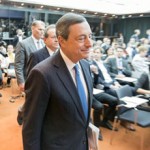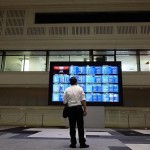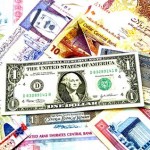Euro Near Two-Year Low as Ifo to Spur Draghi Push; Aussie Gains
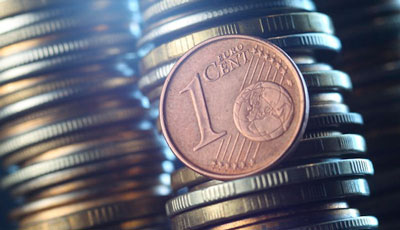
The euro was near a two-year low versus the dollar before a German report that economists said will show business confidence declined for a seventh month.
The shared currency held declines against most major peers after European Central Bank President Mario Draghi said last week officials “will do what we must” to raise inflation. The yen was about 1 percent from a seven-year low to the dollar as polls showed Prime Minister Shinzo Abe’s party has the most support after he called early elections. The currencies of Australia and New Zealand rose for a third day following China’s interest-rate cut at the end of last week.
“We’ve got a weak German economy and disinflation risks,” said Ray Attrill, the global co-head of currency strategy at National Australia Bank Ltd. in Sydney. “In the absence of any signs of an upturn in the German economy anytime soon, Draghi has the upper hand and therefore that plays to more euro weakness ahead.”
The euro was little changed at $1.2395 as of 12:21 p.m. in Singapore from Nov. 21, when it slid 1.2 percent. It touched $1.2358 on Nov. 7, the lowest since August 2012. The single currency gained 0.1 percent to 146.11 yen.
The yen fell 0.1 percent to 117.88 per dollar. It reached 118.98 on Nov. 20, the weakest since August 2007.
Japan’s markets are closed for a public holiday today.
The German Ifo institute’s business climate index, based on a survey of 7,000 executives, declined to 103.0 from 103.2 in October, according to the median estimate in a Bloomberg News survey.
Draghi Pledge
The euro dropped the most in seven weeks against the dollar on Nov. 21 after Draghi said policy makers will look to boost inflation expectations as quickly as possible.
The ECB wants to increase the size of its balance sheet to early-2012 levels to help revive the region’s economy. The central bank has already cut interest rates to records and is buying covered bonds to stimulate growth. It next meets Dec. 4.
“The combination of Japan’s monetary and fiscal policy largesse and the ECB’s now well-documented plans to expand its balance sheet at a time when the Fed has ended quantitative easing and is moving ever so steadily towards the exit continues to drive the U.S. dollar higher,” analysts at National Australia Bank, including Attrill, said in a report today.
The Bloomberg Dollar Spot Index, which tracks the U.S. currency against 10 major counterparts, was headed for its highest closing level since March 2009. The index was little changed at 1,100.20 from Nov. 21, when it rose 0.2 percent to 1,100.05.
Aussie, Kiwi
Australia’s currency climbed 0.2 percent to 86.83 U.S. cents after surging 0.6 percent on Nov. 21. New Zealand’s dollar advanced 0.1 percent to 78.94 U.S. cents.
China, the South Pacific nations’ biggest trading partner, reduced borrowing costs at the end last week for the first time since 2012. The Asian nation’s central bank acted after the economy’s slowdown deepened in October, jeopardizing the government’s growth goal.
“Investors are interpreting the move as a sign that Chinese policy is shifting to offer greater support for the economy, with the expectation that potential stabilization in demand and gains in sentiment will be supportive for commodity producers,” Todd Elmer, a strategist at Citigroup Inc. in Singapore, said in a note to clients today.
In Japan, polls by the Nikkei and Yomiuri newspapers showed Abe’s Liberal Democratic Party having the most support among political parties. The Nikkei survey indicated 35 percent would vote for the LDP, while the Yomiuri revealed 41 percent backing.
Abe dissolved parliament on Nov. 21, after a report at the start of that week showed Japan’s economy contracted for a second-consecutive quarter. Abe also postponed a planned sales-tax increase, and ordered ministers to start preparing a stimulus package.
Source: Bloomberg – Euro Near Two-Year Low as Ifo to Spur Draghi Push; Aussie Gains









